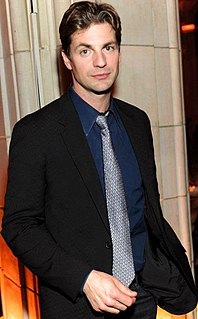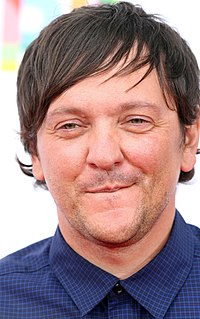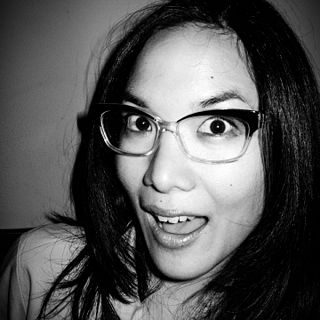A Quote by Jon Stewart
When you're accustomed to doing stand-up, so often you're the only person onstage and it's all your thing. It's very gladiatorial. Obviously, when you're in a scene with somebody, you're supposed to listen and react - and that's a bit of a transition.
Related Quotes
If you feel like you're doing terrible in a scene, that usually means that you're not listening because you're too preoccupied with yourself... you're not listening to your scene partner. If you listen, you're naturally going to get that response that the camera's going to pick up because you just react.
You have to fail, man, but you cannot allow failure to stop you from doing what you must do. Failing is just as good as succeeding in a lot of ways. It's how you react to it all. You can react to success the wrong way and be a total failure. Or you can react to losing with your whole heart, learn from it, and be a huge success. In stand-up, I've learned to know when I'm burning it up or when I'm being so-so. That's experience. I learn every single time I'm on a stage.
You are preparing yourself for a scene, and the most important thing is to remain emotionally available and remain in the moment with your scene partner. You don't want to let your own self-consciousness block the flow of creativity that's coming out so that you can act and react, and play what the scene is all about.
I started doing comedy just as myself, because I thought, "This is what's expected, you're meant to tell stories and do observations." And then I started to realize that I wanted to mix it up a bit, so I started to doing songs, and I had a little keyboard onstage and would bring in little props. Then I thought about the idea of talking about a character and becoming the character onstage. So, it sort of morphed into being stand-up that was more character based, and I found that's the stuff I got the better reaction from and was more exciting for me.
How do you listen? Do you listen with your projections, through your projection, through your ambitions, desire, fears, anxieties, through hearing only what you want to hear, only what will be satisfactory, what will gratify, what will give comfort, what will for the moment alleviate your suffering? If you listen through the screen of your desires, then you obviously listen to your own voice.
Love has within it a redemptive power. And there is a power there that eventually transforms individuals. Just keep being friendly to that person. Just keep loving them, and they can't stand it too long. Oh, they react in many ways in the beginning. They react with guilt feelings, and sometimes they'll hate you a little more at that transition period, but just keep loving them. And by the power of your love they will break down under the load. That's love, you see. It is redemptive.
You know, in Hollywood you know when somebody is getting pregnant. It's supposed to be this beautiful scene: the rays are coming in and you have these beautiful perfect bodies lying on top of each other and there's the room glowing in one person's eyes and the sun coming up over the other person's shoulder.


































